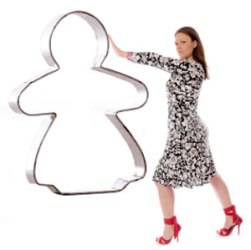 Stress is simply a part of life. Stress can be a positive thing: It can save your life in a fight or flight situation, or it can be the kick in the butt you need to finally finish that project at work you’ve been putting off. Too much stress, however, can have a negative effect on your mental and physical health. In today’s society, where we are moving faster, taking on more responsibility and are constantly technologically connected to the demands of work and home, our lives are becoming more overwhelming, and it may be taking a toll on our waistlines.
Stress is simply a part of life. Stress can be a positive thing: It can save your life in a fight or flight situation, or it can be the kick in the butt you need to finally finish that project at work you’ve been putting off. Too much stress, however, can have a negative effect on your mental and physical health. In today’s society, where we are moving faster, taking on more responsibility and are constantly technologically connected to the demands of work and home, our lives are becoming more overwhelming, and it may be taking a toll on our waistlines.
Cortisol, dubbed the “stress hormone”, is an important hormone secreted by the adrenal glands, responsible for many functions in the body including regulating metabolism and blood pressure, immune function, inflammatory response, and releasing insulin, which maintains blood sugar levels.
Cortisol isn’t only secreted when the body is under stress, but it is secreted in higher levels during the body’s “fight or flight” response to stress (think of when something pops out and scares the crap out of you. That surge you get is your body’s fight or flight response- you either jump and run, or start swinging.) The stress we encounter on a daily basis isn’t always so obvious or sudden, but daily stress, i.e. a jam packed schedule the next day or not knowing how you are going to afford next month’s bills, isn’t immediately remedied, so your stress levels stay elevated for an extended period of time until the stressor is remedied, or more often than not, until another stressor comes along and takes over.
Just as with everything in life, too much of something is never a good thing. Elevated cortisol levels cause many physical, negative changes to the body, including impaired cognitive function, blood sugar imbalances, high blood pressure, and lower immunity, causing you to feel slow and drained of energy, or even come down with an illness.
(more…)










